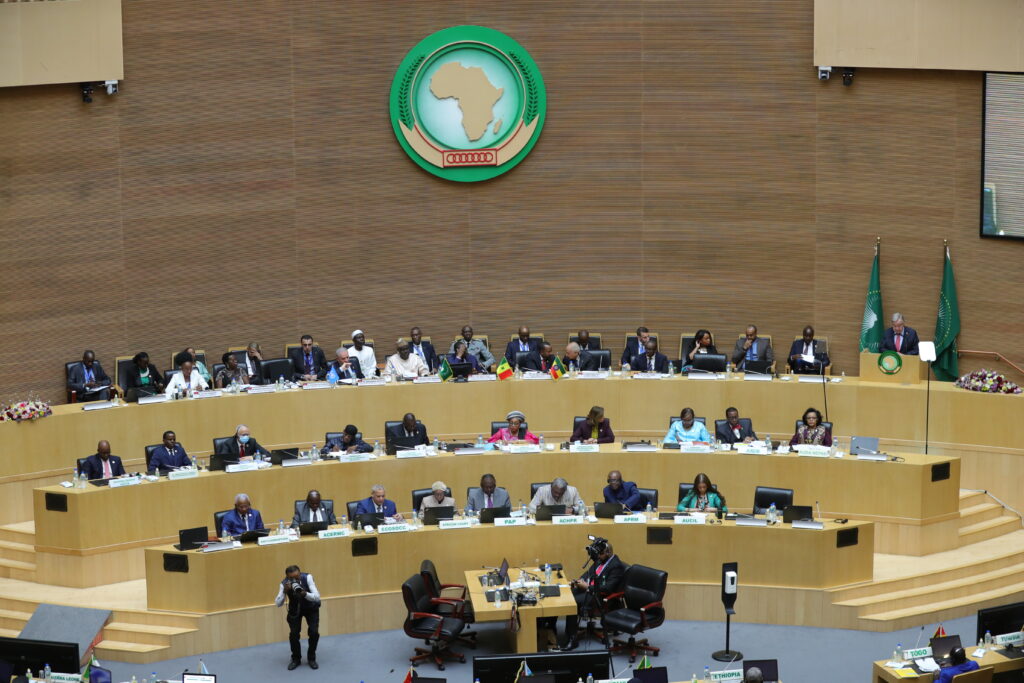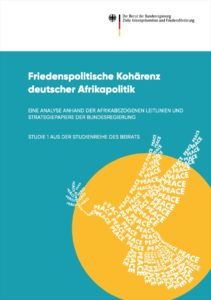Project
Peace Policy Coherence within Germany’s Africa Policy

The “Preventing Crises, Resolving Conflicts, Building Peace” guidelines form the basis for the Federal Government’s peace policy work. These set out the government’s ambition to increase the coherence and connectivity of its policies as well as to interlink its short- and long-term approaches more effectively. Coherent political strategies are necessary in order to prevent crises breaking out, manage acute conflicts and promote peace in the long term. It is important for the entire Federal Government to have a concerted and coordinated approach and for the externally oriented policy fields to work together towards the superordinate goal of promoting lasting peace, particularly when working with, and in, fragile states and conflict contexts. At the same time, what is needed is not only a concerted approach by German actors, but also coordination at the European and international level and an increased focus on local needs within the German engagement.
The working group is concerned with whether and to what extent the German government’s activities are guided by the peace policy principle, and how coherent the impact of these activities is. To what extent are the central guiding principles integrated into the government’s daily work? How is the interministerial approach implemented in conflict contexts? What challenges are posed by the necessary coordination with other international donors in the context of crisis prevention and peacebuilding? What challenges present themselves in terms of balancing the strategic expectations of one’s own work with the need to react to the events unfolding on a daily basis in crisis situations?
First of all, the working group commissioned a study that analysed the degree of peace policy coherence within Africa-related guidelines and strategy papers by the Federal Government and various ministries.
As a next step, the working group commissioned a study to analyze, on the basis of country case studies on Mali and Niger, how coherent German government action is in terms of policy coherence for peace, both with regard to the principles of action laid down in the guidelines and with regard to the instruments and mechanisms used for interministerial coordination. A further comparative case study on probably two other African conflict regions is being planned.
On the basis of the results of the country case studies, the working group plans to address, with an eye to the future, the question of what conclusions can be drawn from the possible gaps and incoherences, and how these can be dealt with purposefully. In this connection, the working group plans to explore and develop the idea of a peace compatibility test.

